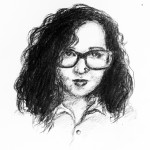Ayaan Hirsi Ali plans to speak at Yale this Monday on the “clash of civilizations” between Islam and the West. But the lecture will likely best be remembered for the clash it sparked on campus.
 Two days ago, the Muslim Students Association emailed an open letter to Yalies about Hirsi Ali, a controversial author and activist whose work as a public figure draws upon her experiences living under fundamentalist Islam. The letter, which was co-signed by 35 additional student organizations (but attributed to no particular authors), criticized the Buckley Program, the conservative student group that invited Hirsi Ali to campus. “[We] are disappointed that our own fellow Yalies would invite such a speaker knowingly and that she would have such a platform in our home,” the letter read.
Two days ago, the Muslim Students Association emailed an open letter to Yalies about Hirsi Ali, a controversial author and activist whose work as a public figure draws upon her experiences living under fundamentalist Islam. The letter, which was co-signed by 35 additional student organizations (but attributed to no particular authors), criticized the Buckley Program, the conservative student group that invited Hirsi Ali to campus. “[We] are disappointed that our own fellow Yalies would invite such a speaker knowingly and that she would have such a platform in our home,” the letter read.
The letter takes issue with Hirsi Ali for both the vitriol of her arguments and her audacity in making them. “Our concern is that Ms. Hirsi Ali is being invited to speak as an authority on Islam despite the fact that she does not hold the credentials to do so,” the letter read. “In the past, under such authority, she has overlooked the complexity of sociopolitical issues in Muslim-majority countries and has purported that Islam promotes a number of violent and inhumane practices.” Hirsi Ali, their argument goes, spreads radical untruths about Islam, her ignorance compounded by her lack of formal scholarly qualifications.
Much of the controversy surrounding the visit has centered on the issue of free speech. But a second debate has gone largely ignored. That debate is about credentialism: a worldview that places extreme emphasis on academic degrees (or similar qualifications, like professional licenses, certificates and titles) as a means to acquiring legitimacy and respect.
On one level, it’s simply preposterous to assert that Hirsi Ali lacks the credentials to speak about her planned topic with authority. She has held elected office in a Western nation and written several books about her relationship to Islam. Her employment history includes the American Enterprise Institute and Harvard’s Kennedy School. How many more credentials does this woman need? Yale professors teach seminars further afield from their interests and experiences than Hirsi Ali’s speech will veer from hers.
But the problems with credentialism run deeper than its strange application in this case. Underwriting the arguments in the open letter — particularly the call for a second speaker with more “representative scholarly qualifications” — is the assumption that, were Hirsi Ali a Harvard Ph.D. instead of an untenured activist, her views about Islam would be different, or at least more nuanced. This is not the case. An advanced degree is not an antidote to beliefs we disagree with, or find distasteful or irrational. My freshman year, when a group called Undergraduates for a Better Yale College sponsored a “True Love Week” about conservative social issues like marriage and chastity, they invited several speakers whose comments on homosexuality were so extreme they drove LGBT students to protest. These speakers were Ph.Ds who’d devoted their academic lives to discussing these issues. They were also,
in my view, pretty wrong.
The joke of credentialism is that when we use a lack of credentials to delegitimize our opponents, we’re forced to respect them once they finally present the sheepskin. But that’s not the only way credentialism hurts discourse. To ask Hirsi Ali to address only her “personal experiences and professional expertise” at the talk, as the open letter requests, unfairly prescribes her. People have diverse interests outside of their specializations, and the spontaneity of these surprising passions and unexpected remarks is what makes attending lectures like this so worthwhile. Plus, who is to be the arbiter of the extent or range of Hirsi Ali’s expertise? We should reject explicit guidelines and place faith in nature’s tried-and-true speech code: that great human desire not to say something dumb.
Ayaan Hirsi Ali’s statements about Islam should disquiet us. But she has every right, and every qualification, to deliver them.
Marissa Medansky is a senior in Morse College and a former opinion editor for the News. Her columns run on Fridays. Contact her at marissa.medansky@yale.edu.







